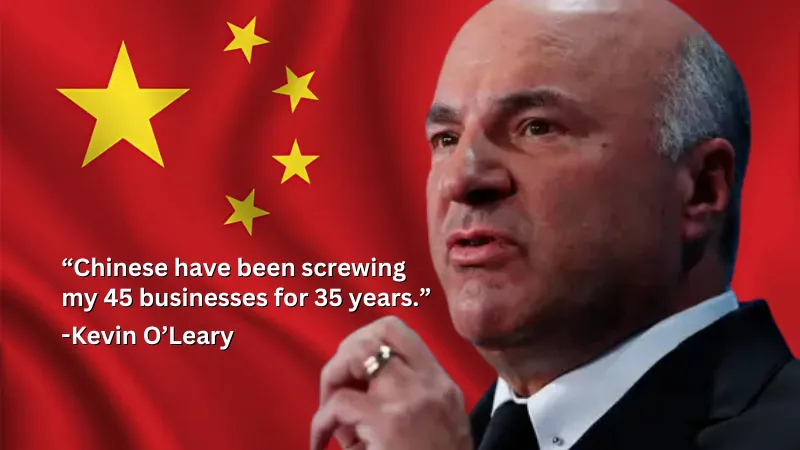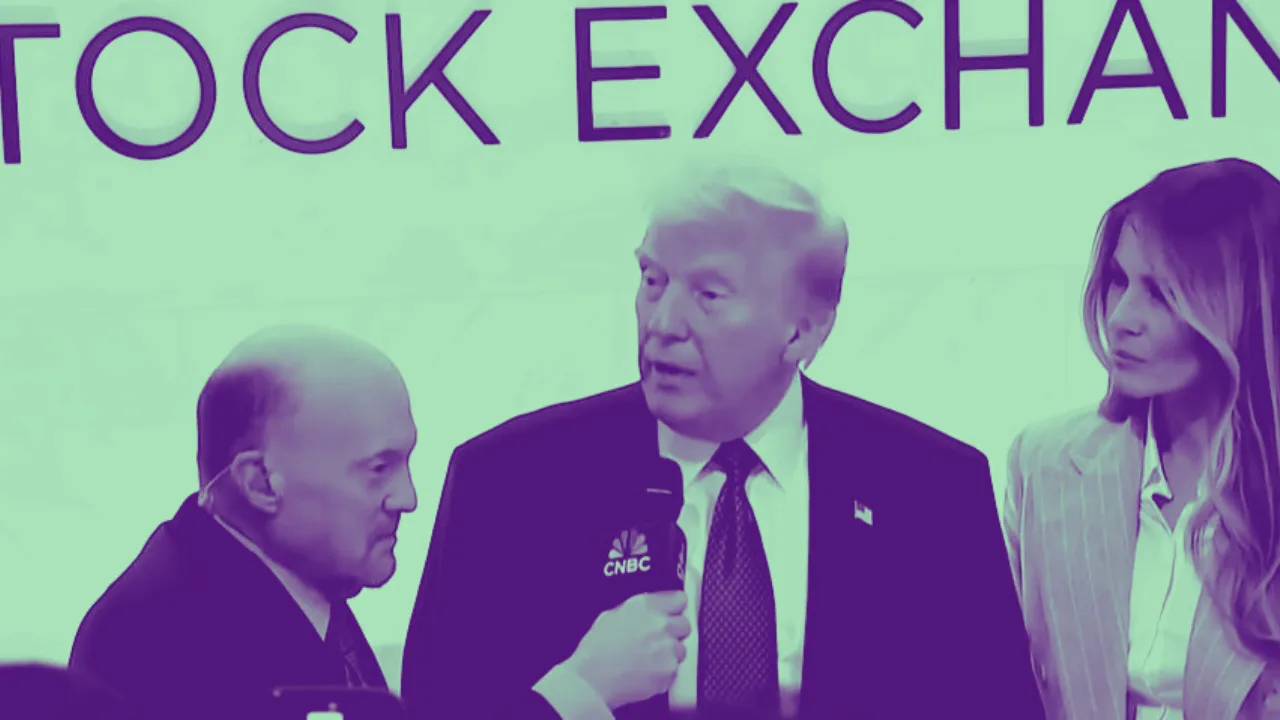In a recent appearance on CNN renowned businessman Kevin O’Leary didn’t hold back his frustrations about China, saying, “Chinese have been screwing my 45 businesses for 35 years.” O’Leary, widely recognized as Mr. Wonderful from Shark Tank, expressed his deep concerns about how U.S. companies are at a disadvantage when doing business in China.
O’Leary’s frustrations echo broader concerns from American businesses and policymakers about China’s unfair trade practices. These range from intellectual property theft to forced technology transfers, and China’s heavy subsidization of domestic industries. O’Leary called for aggressive tariffs, stating, “You squeeze them because the Chinese only understand the stick. I want heavy, heavy, heavy tariffs on China”. Washington Examiner.
China’s Unfair Practices: A Growing Threat to U.S. Businesses
China’s unfair trade practices have been an ongoing issue for many years, affecting businesses across various industries. U.S. companies often face significant challenges, including:
- Intellectual Property Theft: China has long been accused of stealing intellectual property from foreign businesses. This ranges from counterfeiting products to using stolen technologies to undercut foreign competitors Benzinga.
- Forced Technology Transfer: Many American companies are forced to share proprietary technology with Chinese firms in order to do business in China, putting them at a disadvantage.
- Subsidies and Dumping: The Chinese government heavily subsidizes its industries, allowing them to dump products into international markets at artificially low prices, driving competitors out of business.
These practices have put U.S. companies at a structural disadvantage, making it difficult to compete in the global market. But what can America do to protect its economic interests?
Policy Responses: What Trump and Harris Propose to Protect U.S. Businesses
The issue of China’s unfair trade practices has been a central point of debate in U.S. politics. Both Donald Trump and Kamala Harris have spoken extensively about their plans to address these challenges, though their approaches differ.
Donald Trump: Tough Tariffs and Stronger Enforcement
During his presidency, Donald Trump introduced a series of tariffs on Chinese goods, which were meant to level the playing field for American businesses. Trump made his stance clear, stating, “I want to go to DEFCON 19 against China. I don’t like tariffs against anybody else, but I want to bring them to their knees with a blowtorch to deal with us fairly” Washington Examiner.
Trump’s administration imposed tariffs on Chinese goods, particularly in technology sectors, and sought to renegotiate trade deals to ensure better access for U.S. businesses. Trump’s tough-on-China approach continues to resonate with business leaders like O’Leary, who believe that tariffs are the only way to pressure China into reforming its practices
Kamala Harris: Expanding Tariffs and Focusing on Human Rights
Vice President Kamala Harris has also taken a tough stance on China, particularly regarding human rights and labor practices. Her administration has expanded tariffs on Chinese goods, specifically targeting industries like automotive manufacturing. Harris has stressed the importance of holding China accountable, especially regarding forced labor and the treatment of ethnic minorities like the Uyghurs.
Harris has called for further tightening of trade policies to prevent Chinese companies from benefitting from these practices. “We will ensure that American companies aren’t playing by different rules than Chinese firms,” she remarked during a recent press briefing Washington Examiner.
How America Can Protect Itself from China’s Unfair Practices
As the U.S. grapples with how to protect its businesses from China’s unfair practices, several strategies are emerging that could safeguard the country’s economic interests:
- Enforcing Tariffs: Both Trump and Harris have supported tariffs as a tool to counteract China’s anti-competitive behavior. Tariffs can make Chinese goods more expensive, helping American products remain competitive in domestic markets.
- Strengthening IP Protection: Intellectual property theft is one of the biggest concerns for U.S. businesses. Stronger IP protection laws, along with international cooperation, can help curb this problem. The U.S. must also work with international bodies like the World Trade Organization to enforce these protections.
- Encouraging Domestic Manufacturing: Bringing manufacturing jobs back to the U.S. can help reduce reliance on Chinese products. Tax incentives and subsidies for companies that produce goods domestically can bolster American industries and reduce vulnerability to foreign supply chain disruptions.
- Multilateral Alliances: Forming alliances with other countries to confront China’s unfair trade practices can help create a unified front. By working together, the U.S. and its allies can pressure China to reform its trade policies.
- Cybersecurity and Espionage Prevention: Strengthening cybersecurity measures and increasing penalties for corporate espionage can protect U.S. companies from losing critical technologies to Chinese competitors.
Time for Action
Kevin O’Leary’s warnings about China’s unfair practices reflect a broader reality faced by many U.S. businesses. From intellectual property theft to forced technology transfers, American companies have struggled to compete fairly in the Chinese market. While both Trump and Harris have proposed solutions, including tariffs and tighter regulations, the U.S. must continue to explore new ways to protect its industries and workers.
As O’Leary succinctly put it: “Squeeze Chinese heads is what I’m willing to do.” For American policymakers, the question is no longer whether to act, but how aggressively they should respond to China’s unfair practices.





